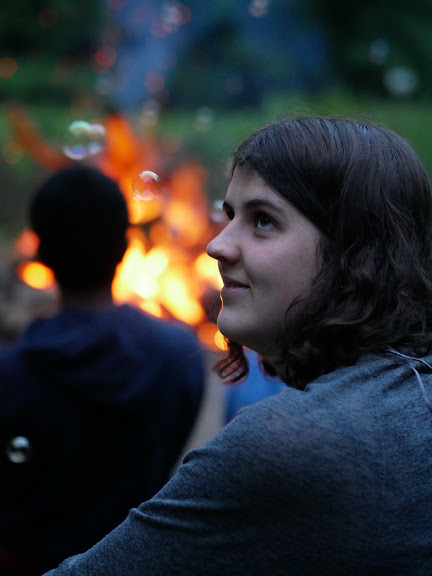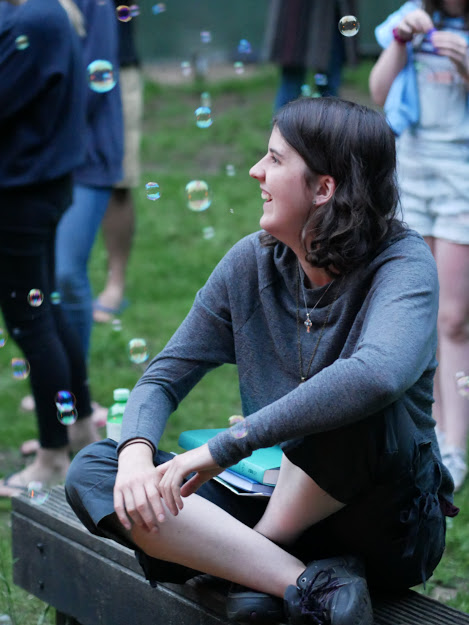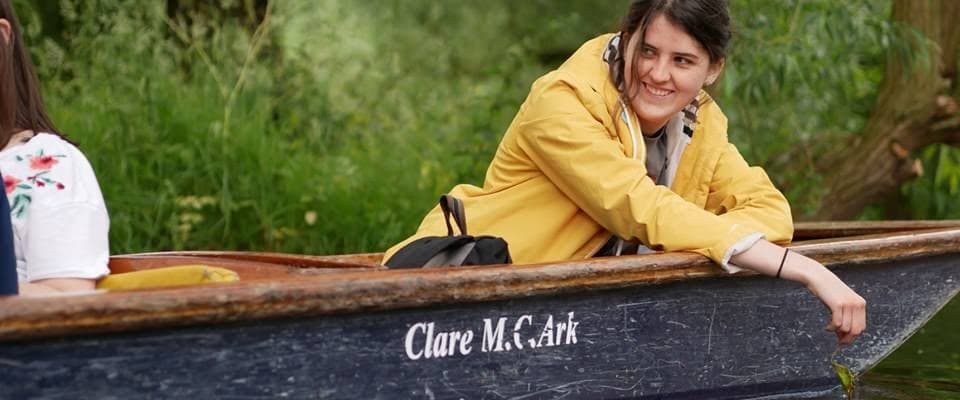Alison is a 3rd year ASNAC at Queens’. She told us about the philosophical journey that she undertook while in her first year.
I’d like to introduce you to a
Viking Age proverb which I’ve come across while studying my bizarre course here
at Cambridge:
Cattle die, kinsmen die, one’s own self dies.
But words of praise will never die, or a noble name.
It’s a kind of bleak encouragement that spurs on a lot of characters in the ancient stories I study. Life is short and nothing is permanent, the idea goes, so the best thing to do is achieve as much as you can so that you can win praise and a reputation – that’s the only part of you that can live on after you die.

We may not be slaying dragons and defeating our enemies in battle, but isn’t the idea a little similar to the kind of mindset that gets us into Cambridge? Always looking to the next achievement – GCSEs, A Levels, good stuff to put on your personal statement, and getting into a Good University, all to try and achieve a ‘noble name’.
That’s the pattern I followed, but when I got to university, I felt I had ground to a halt in terms of how far that kind of thinking had taken me. Chasing after the strange standard of what other people expected of me had got me to the Good University, but what now? Am I supposed to keep always chasing after the next achievement, or is there something else I’m supposed to be doing? I didn’t want my life to keep looming without structure in front of me, so I thought it was worth trying to find out – discussing it with like-minded students; trying to find things to read or listen to which might help me to form a more robust kind of personal philosophy.
The only people I could find who were talking about big things like our purpose in life were the Christian Union. Well, in my family we had long since tucked God away as an old-fashioned and unscientific idea which rational people didn’t have to think about. I hadn’t seriously thought about Jesus since I was five years old. I expected to pick up Christian ideas and examine them, keeping the best bits and discarding the ones which didn’t make sense.

To my surprise, the more I looked into it, the more I found that it did make sense. Christian ideas fitted in with the kind of things I feel and know about the universe even though I wouldn’t be able to observe or explain them. If there were a universe-creating being who had a purpose and identity in mind for you, wouldn’t it be worth trying to find out what that purpose is? It’s such a significant question that it would be irrational not to try and find out whether it was true, one way or another.
The whole thing came with a lot of costs, but also a lot of benefits, including what the Vikings were looking for – a kind of security and permanence that you can’t find in this world. Or in the words of another ancient poem, “The Wanderer”:
grace and consolation from the Father in the heavens,
where, for us, all permanence rests.
